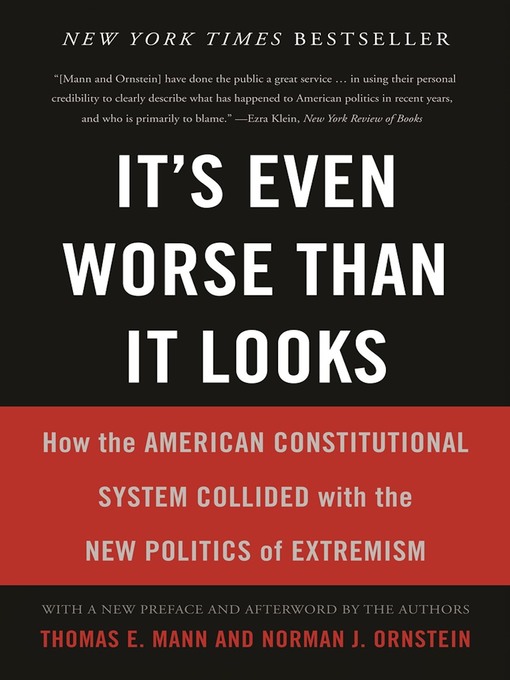Hyperpartisanship is as old as American democracy. But now, acrimony is not confined to a moment; it's a permanent state of affairs and has seeped into every part of the political process. Identifying the overriding problems that have led Congress—and the United States—to the brink of institutional collapse, It's Even Worse Than It Looks profoundly altered the debate about why America's government has become so dysfunctional. Through a new preface and afterword, Thomas Mann and Norman Ornstein bring the story forward, examining the 2012 presidential campaign and exploring the prospects of a less dysfunctional government. As provocative and controversial as ever, It's Even Worse Than It Looks will continue to set the terms of our political debate in the years to come.
- Most popular
- Always Available Classics
- Available now
- New eBook additions
- New kids additions
- New teen additions
- Try something different
- Best Food & Cookbooks
- Are you a Library Book? Cause I'm Checking you Out
- Rainbow Reads
- See all ebooks collections
- Available now
- New audiobook additions
- New kids additions
- New teen additions
- Most popular
- Try something different
- Rainbow Reads
- See all audiobooks collections
- Travel & Outdoor
- Home & Garden
- Food & Cooking
- Health & Fitness
- Sports
- Celebrity
- News & Politics
- Fashion
- Culture & Literature
- Tech & Gaming
- Art & Architecture
- Business & Finance
- Hunting & Fishing
- See all magazines collections

